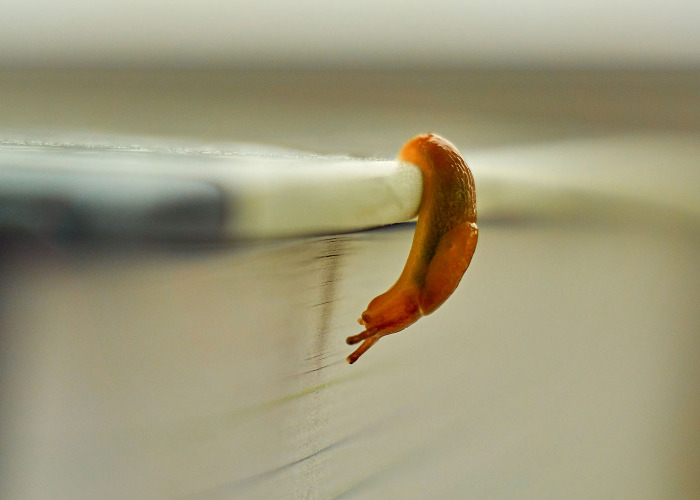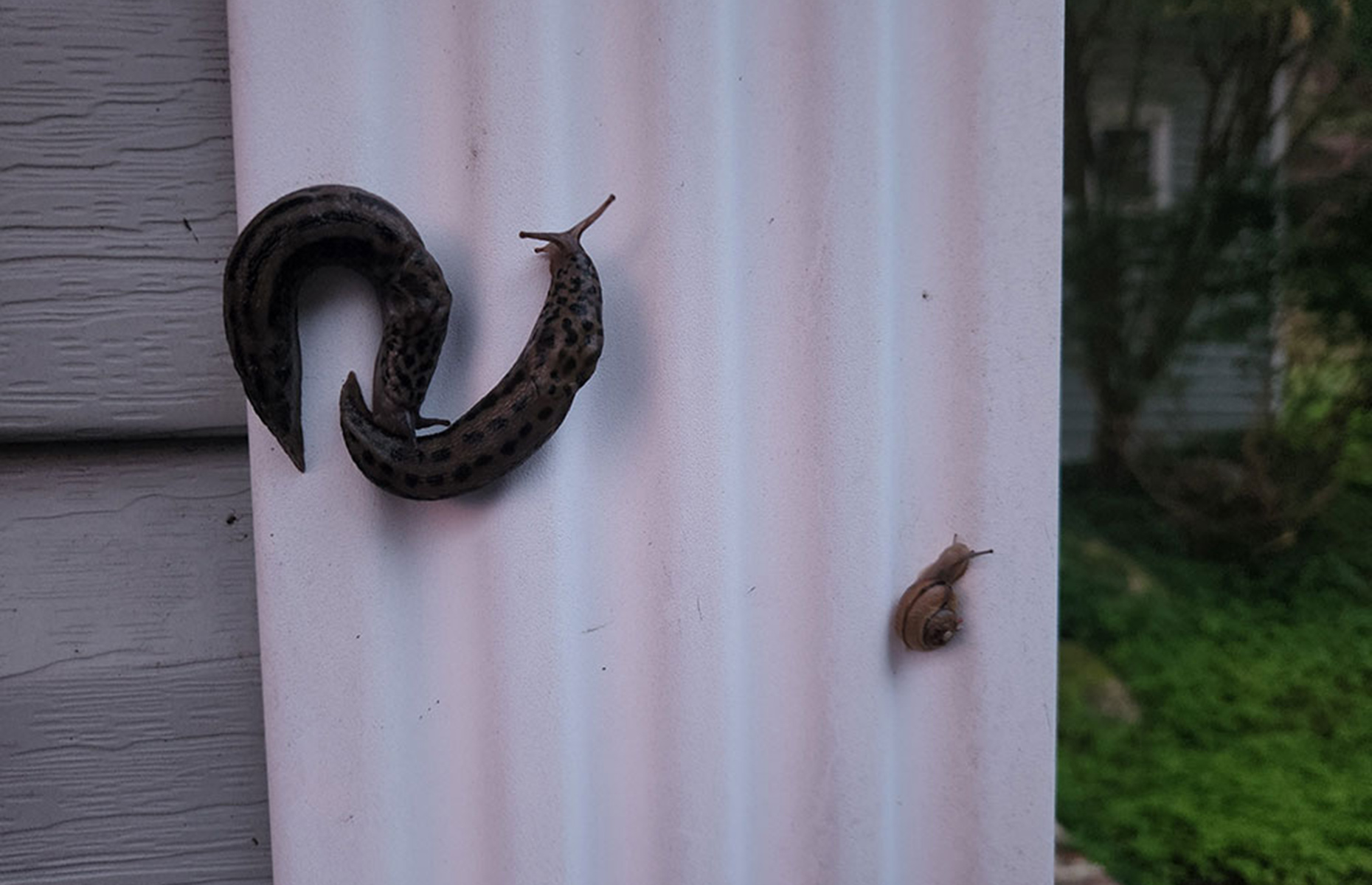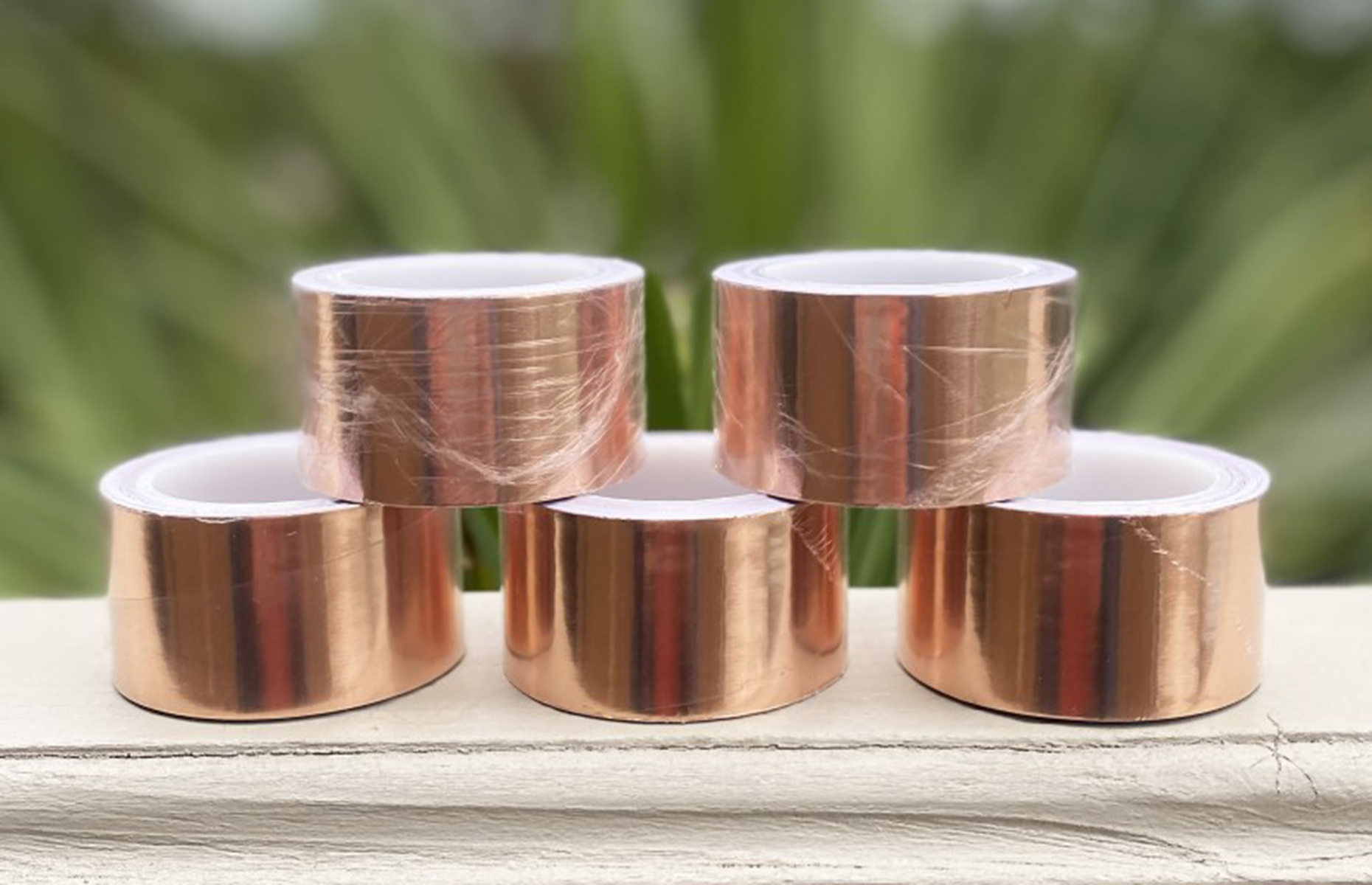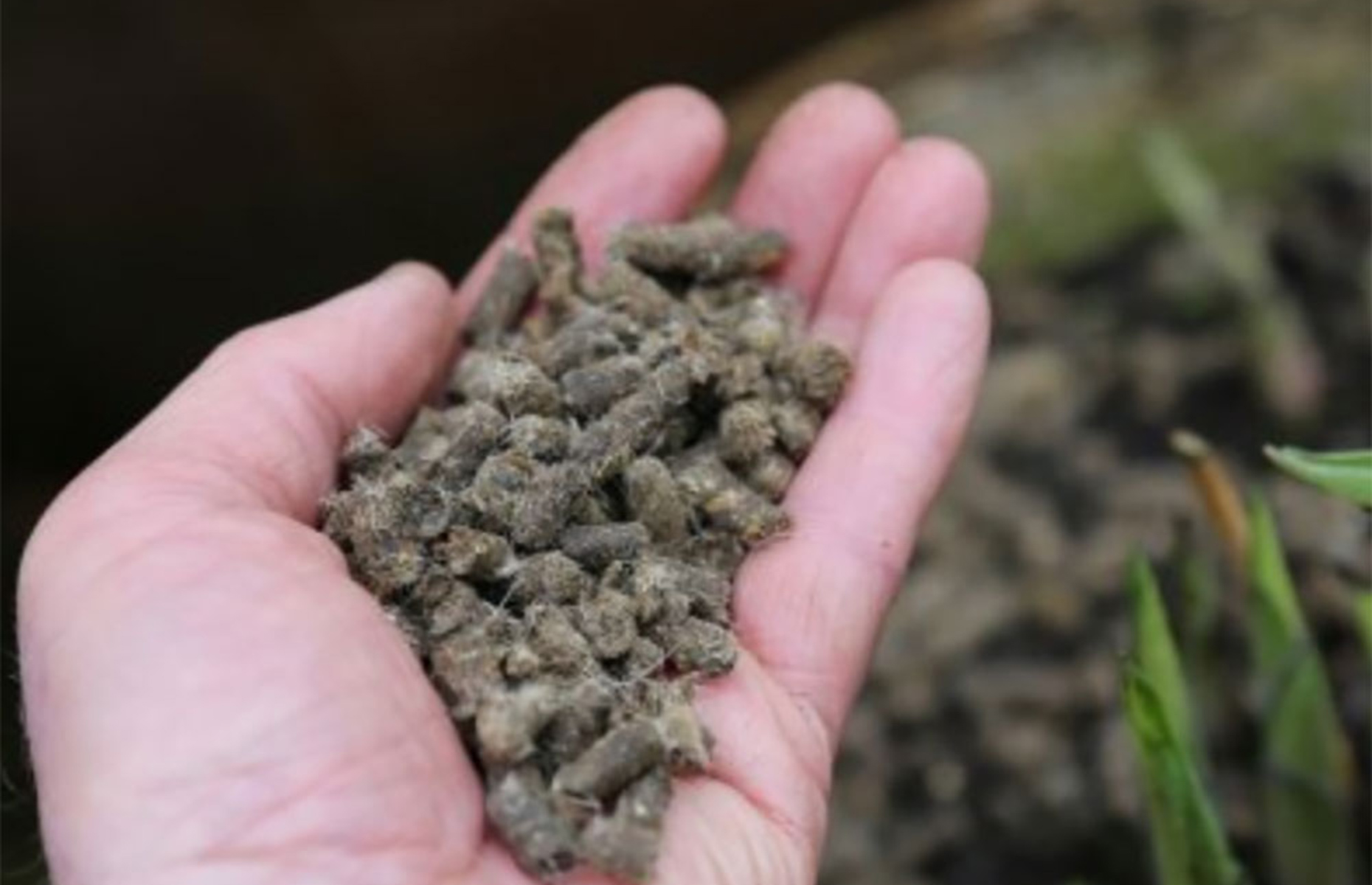How to keep slugs out of your house

It’s bad enough having these slimy creatures in your garden, but what can you do if slugs start coming into your home?
They are the gardener’s perennial problem: menaces, which together with their relative the snail, like to feed on plants, leaving ruined gardens in their sticky trail.
According to the Royal Horticultural Society (the RHS), deterring slugs and snails, which fall into the family of gastropods, is a top concern among the thousands of inquiries it receives each year.
READ MORE: Bamboo causes £10,000 worth of damage to home
But while many homeowners focus on how to keep slugs out of the garden, for lots of us there’s a far bigger problem: how to stop slugs from coming into the house.
It’s a problem that affects many of us if the 300% rise in searches for ‘how to keep slugs out of your house’ reported by estate agents Douglas & Gordon is anything to go by.
Despite their reputation, not all slugs are garden pests. Only eight or nine of the 44 species of gastropods found in the UK eat plants—the yellow cellar slug and the green cellar slug are the ones you’re most likely to find in your home—and in fact, the RHS says it no longer considers gastropods pests at all; such is their contribution to the garden ecosystem.
Still, if you're anything like us, you'll still want to stop slugs from getting into your house.
Why are there slugs in my house?

Image credit: 2022 Julie Saint / Shutterstock
Slugs like dark and moist places and they are attracted to mould and algae, so addressing any damp issues could be a good first step.
Slugs also have a good sense of smell, so food left out—even pet food—could attract them, too.
The question of how slugs get into your house is a simple one to answer: with no bones, slugs are nimble creatures that can squeeze themselves through the thinnest of openings and they can even scale walls.
Here are our top tips for tackling these unwelcome visitors...
1. Find out where they’re coming in
According to Oxford City Council’s pest control department, the best way of detecting slugs or snails in your home is the "tell-tale shiny silvery slime trail which can be found on carpets and floors."
Use this evidence to your benefit. Slugs are nocturnal creatures so by morning, they have usually made their way back outside to sleep, leaving a slimy trail behind. If you follow this trail back out of your house, you should be able to see where they are coming in and then close up gaps with draught extractors, sealant or even a filler such as this expanding foam.
2. Put down copper tape

Image credit: Selections
Gardeners who’ve been victims of slugs' greedy ways in the past will know that copper tape is a good way of keeping slugs away from plants, but did you know that it can be used inside too?
Copper tape will deter slugs by giving them a small charge—like an electric shock—if they touch it.
3. Use wool pellets

Image credit: Vitax
As of 1 April 2022, traditional slug pellets, which contain metaldehyde, are now banned in the UK as they can be harmful to family pets and other local wildlife. But there are alternatives out there, such as wool pellets that break down naturally and create an abrasive barrier that slugs don’t like. There's plenty of products on the market, such as Slug Gone by Vitax.
4. Create obstacles
Slugs like an easy ride, or should that be an easy slide? Anything you can do to stop easy entry into your home will help—broken eggshells are a good natural deterrent, while slugs hate the smell of coffee, so a sprinkle of coffee grounds around potential access areas, such as drains and vents, can be effective.
5. Encourage predators
A birdfeeder or a pond could help address the eco-balance in your garden and keep slugs at bay, and if they’re not in your garden, they are much less likely to find their way indoors.
Oxford City Council's pest control says hedgehogs, which are well known for feasting on slugs, can be encouraged in the garden by providing a nest box. They also advise that "chickens and ducks also do a good job at keeping numbers down."
As good a reason as any to fill our gardens with wildlife, we say.
READ MORE: Spittlebugs: warning as strange foam appears on garden plants
Main photo: 2019 Paul's photos of stuff / Shutterstock
Comments
Be the first to comment
Do you want to comment on this article? You need to be signed in for this feature